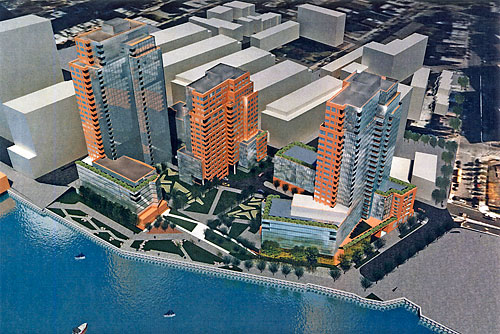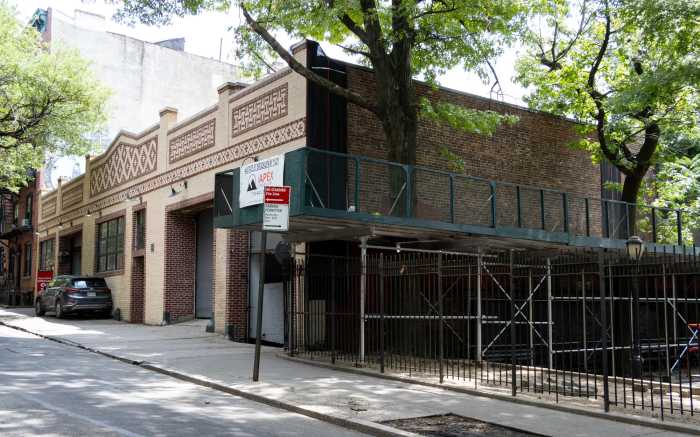The developer of a controversial waterfront housing project has hiked the number of affordable units in the project to 30 percent of the entire complex — but it’s still not enough to satisfy Councilman Steve Levin, who demanded more below-market-rate units.
Developer Isack Rosenberg’s “Rose Plaza” project initially set aside just 20 percent of its mostly studio and one-bedroom units as “affordable” — but as the project has moved through the public-review process, he has added more and more subsidized apartments, and increased their size, to accommodate the community board and Borough President Markowitz.
Levin, too, demanded 30 percent — or more — affordable units, but sources say that he’s still not on board.
Officially, the councilman told The Brooklyn Paper that negotiations are ongoing.
So the question remains: What does Steve Levin want?
For now, no one seems to know.
“We absolutely believed that 20 percent was appropriate, 25 percent was more than appropriate, 28 percent was unprecedented and we’ve now come forth with 30 percent,” said Rosenberg’s attorney Howard Weiss. “We can’t imagine that anyone in the Council that has been supportive of affordability would [reject] a project that is 30 percent affordable in Williamsburg.”
In addition to the expanded affordability, Rose Plaza will now include eight four-bedroom units — family-sized apartments that both Markowitz and Levin championed.
Weiss called that “a new benchmark” in waterfront development.
The project, located on Kent Avenue near Division Avenues in South Williamsburg, has been in the works for more than six years but is at a critical juncture, as the Council’s Land-Use Committee will vote as early as next Tuesday.
Levin is a key player in the process, as councilmembers often defer to a colleague who represents the neighborhood in which a development project is located.
And Levin remains an opponent. He has argued that Rosenberg should set aside 40 percent of the complex as below-market-rate rentals — a standard set by the adjacent Schaefer Landing complex.
Then again, Schaefer Landing only includes 140 affordable units — and also received additional city subsidies. Rose Plaza, at 30 percent affordability, would create roughly 230 of the highly sought-after apartments.
And a 2005 rezoning of the entire waterfront stretch of Greenpoint and Williamsburg only required that 20 percent of a project’s units be set aside as affordable.
Levin’s allies have pointed to concerns over Rosenberg’s ongoing financial problems, resulting from a near-bankruptcy at Warehouse 11, another development project on N. 11th Street and Roebling Avenue. Rosenberg has settled with his bank after defaulting on a $50 million mortgage on that project last summer — and Weiss denied that prior money problems would sway councilmembers against the current proposal.
























